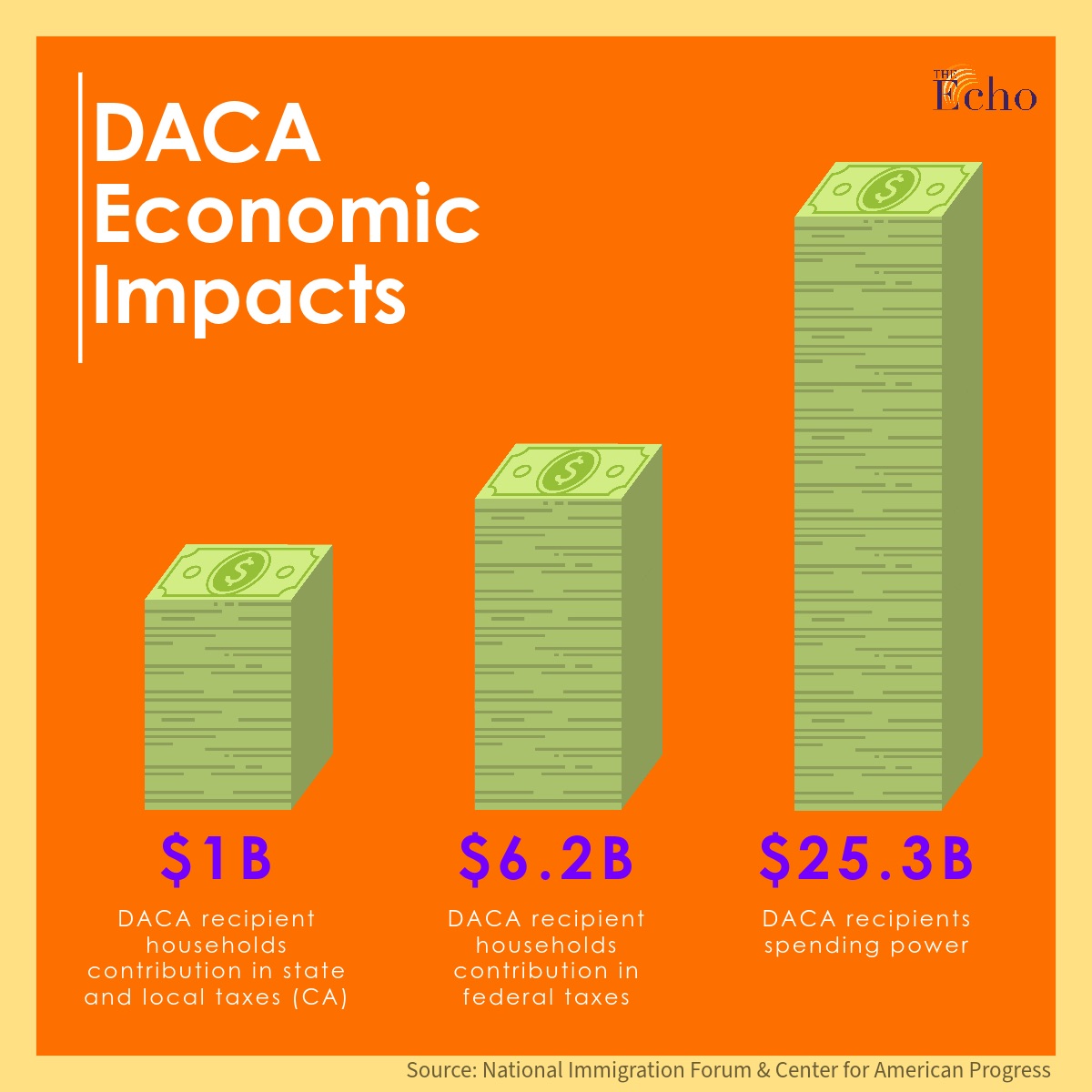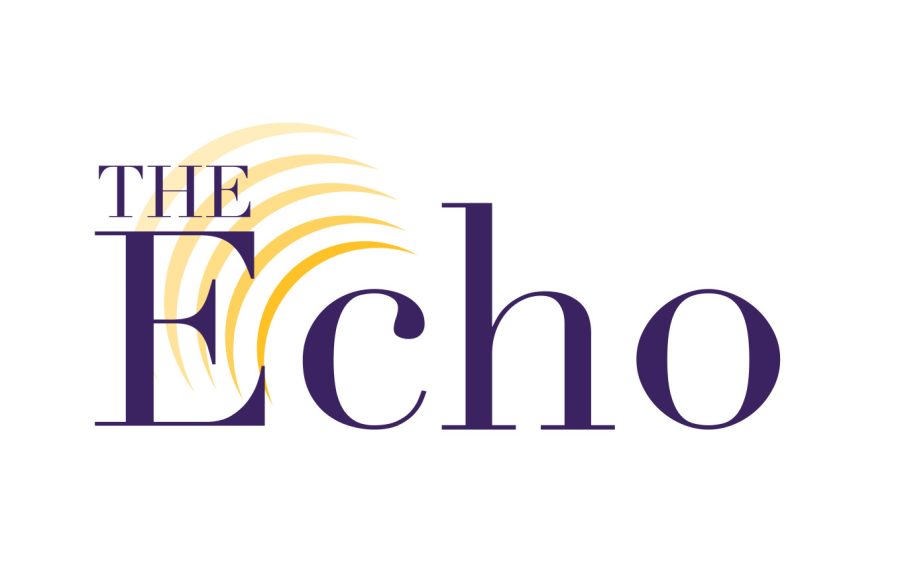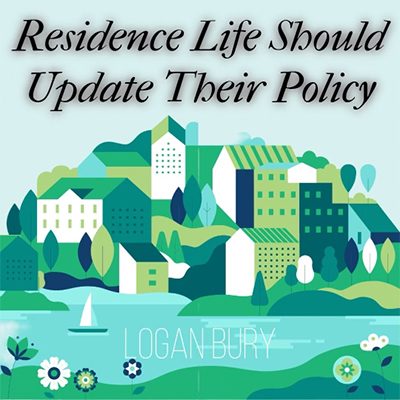The questions and debates regarding citizenship status, immigration, and deportation have been an integral part of American history since the birth of the United States. More specifically, the notion of immigration became a huge talking point when President Barack Obama created the Deferred Action for Childhood Arrivals program in 2012.
Since its creation, DACA has faced countless legal challenges, but none have been more prevalent than those of the past five years.
During his presidency, President Donald Trump and his administration called for the termination of the DACA program; however, in a historical Supreme Court decision, the court held that his abrupt termination of the program was unconstitutional. According to an NPR article, Chief Justice of the United States John Roberts states that there were “no detailed justifications for canceling DACA.”
While the 2020 5-4 ruling went against the Trump administration’s attempts, the most recent ruling in early September favored the Republican-led states fighting against DACA’s existence.
On Sept. 13, U.S. District Judge Andrew Hansen ruled that the attempts of President Biden’s administration to codify DACA was illegal. Hansen stated DACA’s implementation process actively usurps power from Congress and any recent amendments to the program fail to enact sufficient change.
Politico, a U.S. based political newspaper, wrote an article that explained in-detail the extent of Hansen’s decision. The article states that since its creation, DACA has allowed roughly “580,000 undocumented immigrants who arrived in the U.S. as children to receive work permits and deportation relief,” according to United States Citizenship and Immigration Services.
Regardless of the political party you align with or your personal views on immigration, there is no denying that the permanent termination of DACA could have irreversible consequences on American culture, education, and economy.
According to a report by the American Immigration Council, California alone is home to 183,000 DACA recipients.
A similar article by the Center for American Progress shows the economical impact that DACA recipients have on the American economy. According to the article, DACA recipients in this state pay roughly $2.1 billion in federal taxes and $1.0 billion in state and local taxes. The numbers are similar in states such as Texas, who also have a large DACA population.
Economics aside, DACA recipients have a significant impact on higher education and their participation is crucial to the sense of community built at institutions such as California Lutheran University.
DACA has two primary functions: providing work permits and social security numbers to recipients and relief from the possibility of deportation.
Thanks to the California Assembly Bill 540, all undocumented individuals in California are eligible to attend college and receive institutional scholarships. However, the burden of paying for miscellaneous items could weigh heavily on their minds.
Likewise, there are several other aspects of “normal” life that undocumented students have the burden of worrying about that those with status don’t particularly struggle with.
For example, with DACA protection, students can apply to campus jobs without having to struggle to find under-the-table work. Additionally, without the worry of deportation, DACA recipients are able to exist as freely as they can given their status.
Assistant Professor of Sociology and Criminal Justice Cynthia Duarte is the co-founder and a trainer for the Cal Lutheran DREAMer Ally Program.
“With those two things in mind, we were able to lift those students out of the shadows and really integrate them into Cal Lutheran life,” Duarte said.
Duarte said having the DACA program is crucial to the integration of recipients within the Cal Lutheran community. Without the protection that DACA provides, students can potentially have a difficult time becoming comfortable on campus.
“If you don’t have DACA, we can’t hire you on campus,” Duarte said. “That makes it so much more challenging to be a part of the community, thrive here, and do well in school here because of the burdens you have if you don’t have DACA.”
The California Dream Act allows recipients attending California public colleges and universities the opportunity to receive financial assistance regardless of citizenship status. However, Cal Lutheran, as well as several other private California schools have adopted similar rules despite their private status.
This further supports DACA students in their pursuit of higher education.
Practicality aside, DACA recipients contribute so much to the culture and development of college campuses.
Like any other students, DACA and undocumented students participate in clubs, attend school events, play sports, and more.
While it’s great that faculty and staff have the option to participate in DREAMer ally training, it’s also important that students educate themselves on DACA-related topics so that they too can provide emotional support to their friends and peers who may hold this status.
Assistant Professor of Political Science, Kiku Huckle, would encourage all students to learn about DREAMer issues to better help their community.
“Of course it depends on what type of questions students have but any DREAMer ally on campus is a resource available to students regardless of status,” Huckle said.
Additionally, while the most recent decision does not require any immediate sense of action on the part of DACA students, Duarte wants to remind recipients to check their emails and apply for their DACA renewal no later than a year before their status ends.
“More than anything, they just want to know that at Cal Lutheran we care and that we have faculty and staff on campus who will be sensitive about some of the issues they’re going through,” Duarte said.
The DREAMer ally program offers resources to students with and without DACA status as well as to students from mixed-status families.
The continuation of the DACA program is paramount to the success and development of culture within campuses across the country and now, more than ever, it’s important for all students to educate themselves on the topic.








